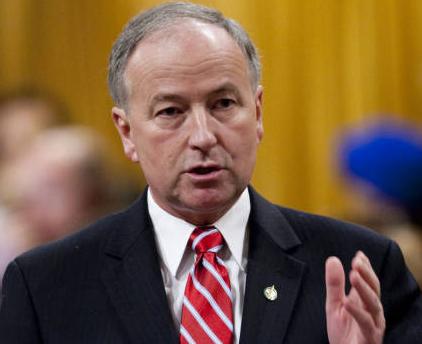The decision from the BC Supreme Court upholding the constitutionality of laws against polygamy received unanimous support from all parties in Ottawa on Nov 23, with Justice Minister Rob Nicholson announcing that the government is “pleased with the decision.”
The court ruled that polyamorists should be allowed to have multiple relationships so long as they don’t get married, but polygamy will remain a crime.
“Polygamy has no place in modern society, and the prohibition is consistent with Canadian values, the charter and the Canadian Bill of Rights,” Nicholson told the Commons during question period. “In our view, polygamy is harmful to society, to those involved with it, particularly to women and to children born within polygamous families.”
Opposition parties were also quick to praise the ruling.
“We’re satisfied with that ruling,” says NDP justice critic Jack Harris, noting he hopes it will not be appealed. “We also agree with the recommendation that these laws not prosecute child brides or those who’ve been on the other side of that, who have been brought up in polygamous families.”
Liberal MP Scott Brison also approved of the ruling.
“It reminds us that the Conservatives’ fear-mongering decision that somehow upholding the Charter of Rights and Freedoms and extending same-sex marriage rights would lead to polygamy was totally bogus from the beginning,” he says.
Green Party Leader Elizabeth May notes that the decision acknowledges there is an infringement on charter rights, in that people in polyamorous relationships cannot get married, but it’s considered reasonable under the circumstances. She says the nuance in the decision will affect a number of different communities.
“It’s important for people in the polyamorous community to be assured that this is not affecting them,” May says. “It’s clear that the attention that the court gives to harm is particularly to those who might be coerced at a young age.”
Carissima Mathen, associate professor of law at the University of Ottawa, is disappointed by the decision because it doesn’t challenge the arbitrary nature of laws singling out relationships based on the number of persons involved.
“The court really didn’t do anything with the definition of the crime, so polygamy is supposedly justified because it constitutes all these harms to women and children, but it can be applied to any relationship regardless of the breakdown of the genders,” Mathen says.
Mathen is also concerned because the law applies to anyone over the age of 18 as consenting to a polygamous marriage.
“It specifically makes that finding because he goes on to say that the one problem of the law is that it applies to young persons – people between the ages of 12 and 17,” Mathen says. “It doesn’t matter, apparently, how vulnerable or marginalized or oppressed any of the parties are in the polygamous relationship; if they’re over the age of 18, we’re good to go.”
Mathen says the ruling does not require any proof of harm.
Mathen says Chief Justice Robert Bauman’s ruling is also problematic because it makes the distinction that polygamy is related to marriage, whereas polyamory is simply social arrangements involving intimate relationships.
“The fact that the Criminal Code does mention conjugal unions, he denudes that of all meaning, but at the same time he’s presented us with a real conundrum as to when something will be considered a polygamous marriage and when it won’t,” Mathen says. “His intent, I think, was to somehow carve out a space for polyamory, but functionally, I don’t know how that’s going to work.”
Mathen thinks the BC government could appeal the ruling on the basis that the definition of polygamy needs to be reviewed.
“And of course, the government of Canada, could if it wanted, appeal on the basis that the charter violation that was found is not correct,” Mathen says.
“What will happen if they don’t appeal and they simply proceed with the indictments is that [Bountiful, BC, polygamist leader William] Blackmore will absolutely challenge this, and then you will have the normal course of events, which is a charter challenge in the course of a criminal trial, which will have to be addressed first. But it’s complicated, because this is an unprecedented proceeding – we’ve never had a reference at trial court like this.”


 Why you can trust Xtra
Why you can trust Xtra


